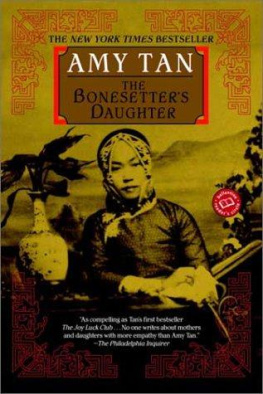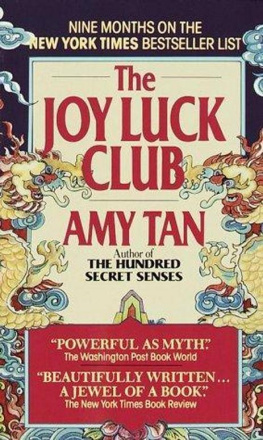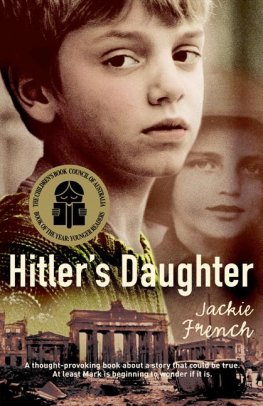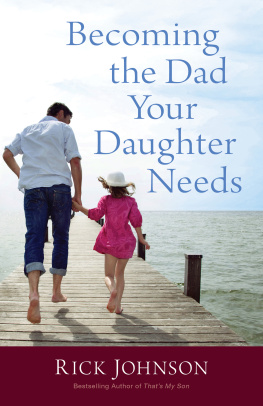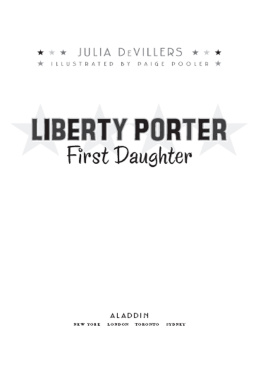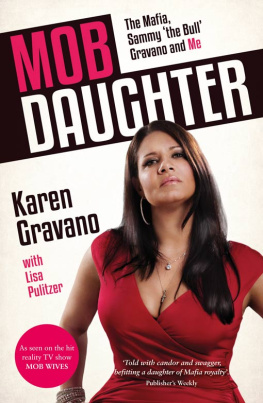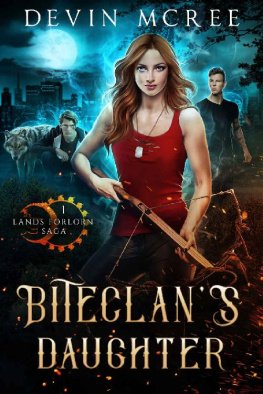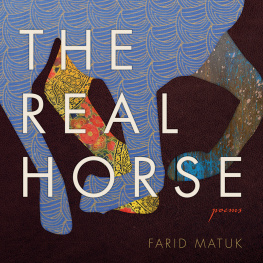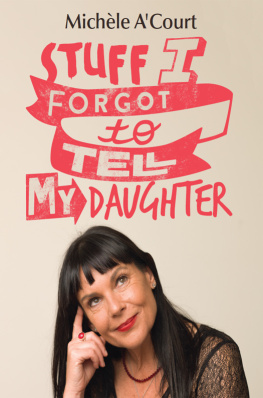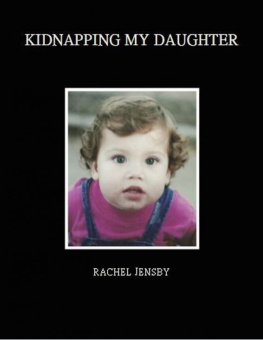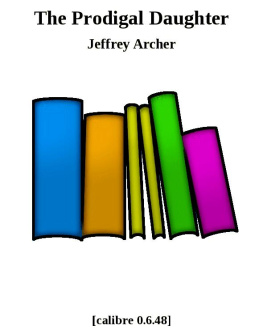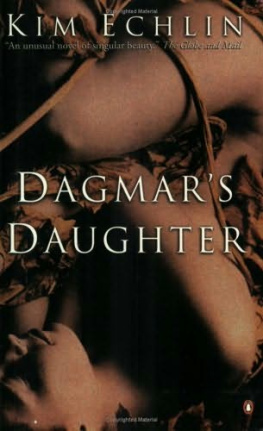Amy Tan - The Bonesetters Daughter
Here you can read online Amy Tan - The Bonesetters Daughter full text of the book (entire story) in english for free. Download pdf and epub, get meaning, cover and reviews about this ebook. year: 2001, publisher: Putnam, genre: Prose. Description of the work, (preface) as well as reviews are available. Best literature library LitArk.com created for fans of good reading and offers a wide selection of genres:
Romance novel
Science fiction
Adventure
Detective
Science
History
Home and family
Prose
Art
Politics
Computer
Non-fiction
Religion
Business
Children
Humor
Choose a favorite category and find really read worthwhile books. Enjoy immersion in the world of imagination, feel the emotions of the characters or learn something new for yourself, make an fascinating discovery.
The Bonesetters Daughter: summary, description and annotation
We offer to read an annotation, description, summary or preface (depends on what the author of the book "The Bonesetters Daughter" wrote himself). If you haven't found the necessary information about the book — write in the comments, we will try to find it.
The Bonesetters Daughter — read online for free the complete book (whole text) full work
Below is the text of the book, divided by pages. System saving the place of the last page read, allows you to conveniently read the book "The Bonesetters Daughter" online for free, without having to search again every time where you left off. Put a bookmark, and you can go to the page where you finished reading at any time.
Font size:
Interval:
Bookmark:
When Ruth returned to LuLing's apartment, she began to throw away what her mother had saved: dirty napkins and plastic bags, restaurant packets of soy sauce and mustard and disposable chopsticks, used straws and expired coupons, wads of cotton from medicine bottles and the empty bottles themselves. She emptied the cupboards of cartons and jars with their labels still attached. There was enough rotten food from the fridge and freezer to fill four large garbage sacks.
Cleaning helped her feel that she was removing the clutter from her mother's mind. She opened more closets. She saw hand towels with holly motifs, a Christmas present that LuLing never used. She put them in a bag destined for Goodwill. There were also scratchy towels and bargain-sale sheets she remembered using as a child. The newer linens were still in the department-store gift boxes they had come in.
But as Ruth reached for the old towels, she found she could not get rid of them any more than her mother could. These were objects suffused with a life and a past. They had a history, a personality, a connection to other memories. This towel in her hands now, for instance, with its fuchsia flowers, she once thought it was beautiful. She used to wrap it around her wet hair and pretend she was a queen wearing a turban. She took it to the beach one day and her mother scolded her for using "best things" instead of the green towel with frayed ends. By upbringing, Ruth could never be like Gideon, who bought thousands of dollars' worth of Italian linens each year and tossed out last year's collection as readily as last month's Architectural Digest. Perhaps she was not as frugal as her mother, but she was aware of the possibility that she might regret the loss of something.
Ruth went into LuLing's bedroom. On the dresser were bottles of toilet water, about two dozen, still in their cellophane-bound boxes. "Stinky water," her mother called it. Ruth had tried to explain to her that toilet water was not the same as water from a toilet. But LuLing said that how something sounded was what counted, and she believed these gifts from GaoLing and her family were meant to insult her.
"Well, if you don't like it," Ruth once said, "why do you always tell them it's just what you wanted?"
"How I cannot show polite?"
"Then be polite, but throw it away later if it bothers you so much."
"Throw away? How I can throw away? This waste money!"
"Then give it away."
"Who want such thing? Toilet water!peh!like I big insult them."
So there they sat, two dozen bottles, two dozen insults, some from GaoLing, some from GaoLing's daughter, who were unmindful that LuLing rose each morning, saw these gifts, and began the day feeling the world was against her. Out of curiosity, Ruth opened a box and twisted the cap of the bottle inside. Stinky! Her mother was right. Then again, what was the shelf life of scented water? It was not as though toilet water aged like wine. Ruth started to put the boxes into the Goodwill bag, then caught herself. Resolute but still feeling wasteful, she put them into the bag destined for the dump. And what about this face powder? She opened a compact case of a gold-tone metal with fleur-de-lys markings. It had to be at least thirty years old. The powder inside was an oxidized orange, the cheek accent of ventriloquists' dummies. Whatever it was looked like it could cause canceror Alzheimer's. Everything in the world, no matter how apparently benign, was potentially dangerous, bulging with toxins that could escape and infect you when you least expected it. Her mother had taught her that.
She plucked out the powder puff. Its edges were still nubby, but the center was worn smooth from its once-daily skimming over the curves of LuLing's face. She threw the compact and powder puff in the trash bag. A moment later, she panicked, retrieved the compact and nearly cried. This was part of her mother's life! So what if she was being sentimental? She opened the compact again and saw her pained face in its mirror, then noticed the orange powder again. No, this wasn't being sentimental. It was morbid and disgusting. She stuffed the compact once more into the trash bag.
By nightfall, one corner of the living room was jammed with items Ruth had decided her mother would not miss: a rotary Princess phone, sewing patterns, piles of old utility bills, five frosted iced-tea glasses, a bunch of mismatched coffee mugs bearing slogans, a three-pod lamp missing one pod, the old rusted clam-shaped patio chair, a toaster with a frayed cord and curves like an old Buick fender, a kitchen clock with knife, fork, and spoon as hour, minute, and second hands, a knitting bag with its contents of half-finished purple, turquoise, and green slippers, medicines that had expired, and a spidery thatch of old hangers.
It was late, but Ruth felt even more energized, full of purpose. Glancing about the apartment, she counted on her fingers what repairs were needed to prevent accidents. The wall sockets needed to be brought up to code. The smoke detectors should be replaced. Get the water heater turned down so that her mother could not be scalded. Was the brown stain on the ceiling the result of a leak? She followed where the water might be dripping, and her discerning eye skidded to a stop on the floor near the couch. She rushed over and peeled back the rug, and stared at the floorboard. This was one of her mother's hiding places, where she hoarded valuables that might be needed in time of war or, as LuLing said, "disaster you cannot even imagine, they so bad." Ruth pressed on one end of the board, and lo and behold, like a seesaw, the other end lifted. Aha! The gold serpentine bracelet! She plucked it out and laughed giddily as if she had just picked the right door on a game show. Her mother had dragged her into Royal Jade House on Jackson Street and bought the bracelet for a hundred twenty dollars, telling Ruth it was twenty-four-carat gold and could be weighed on a scale and traded for full value in an emergency.
And what about LuLing's other hiding spots? At the never used fireplace, Ruth lifted a basket containing photo albums. She pried at a loose brick, pulled it out, andsure enoughit was still there, a twenty-dollar bill wrapped around four singles. Unbelievable! She felt giddy at finding this small treasure, a memento from her adolescent past. When they moved into this place, LuLing had put five twenty-dollar bills under the brick. Ruth would check every now and then, always noting that the bills lay in the same perfectly aligned wad. One day she put a piece of her hair on top of the money; she had seen this trick in a movie about a boy detective. Every time she looked after that, the hair was still there. When Ruth was fifteen, she began to borrow from the stash during times of her own emergencieswhen she needed a dollar here and there for forbidden things: mascara, a movie ticket, and later, Marlboro cigarettes. At first she was always anxious until she could replace the bill. And when she did, she felt relieved and elated that she had not been caught. She rationalized that she deserved the moneyfor mowing the lawn, washing the dishes, being yelled at for no good reason. She replaced the missing twenties with tens, then fives, and eventually, just the singles wrapped with the one remaining twenty.
And now, thirty-one years afterward, in seeing the reminder of her small larceny, she was both the girl she once was and the observer of that younger version of herself. She remembered the unhappy girl who lived in her body, who was full of passion, rage, and sudden impulses. She used to wonder: Should she believe in God or be a nihilist? Be Buddhist or a beatnik? And whichever it should be, what was the lesson in her mother's being miserable all the time? Were there really ghosts? If not, did that mean her mother was really crazy? Was there really such a thing as luck? If not, why did Ruth's cousins live in Saratoga? At times, she became resolute in wanting to be exactly the opposite of her mother. Rather than complain about the world, she wanted to do something constructive. She would join the Peace Corps and go into remote jungles. Another day, she chose to become a veterinarian and help injured animals. Still later, she thought about becoming a teacher to kids who were retarded. She wouldn't point out what was wrong, as her mother did with her, exclaiming that half her brain must be missing. She would treat them as living souls equal to everyone else.
Font size:
Interval:
Bookmark:
Similar books «The Bonesetters Daughter»
Look at similar books to The Bonesetters Daughter. We have selected literature similar in name and meaning in the hope of providing readers with more options to find new, interesting, not yet read works.
Discussion, reviews of the book The Bonesetters Daughter and just readers' own opinions. Leave your comments, write what you think about the work, its meaning or the main characters. Specify what exactly you liked and what you didn't like, and why you think so.

